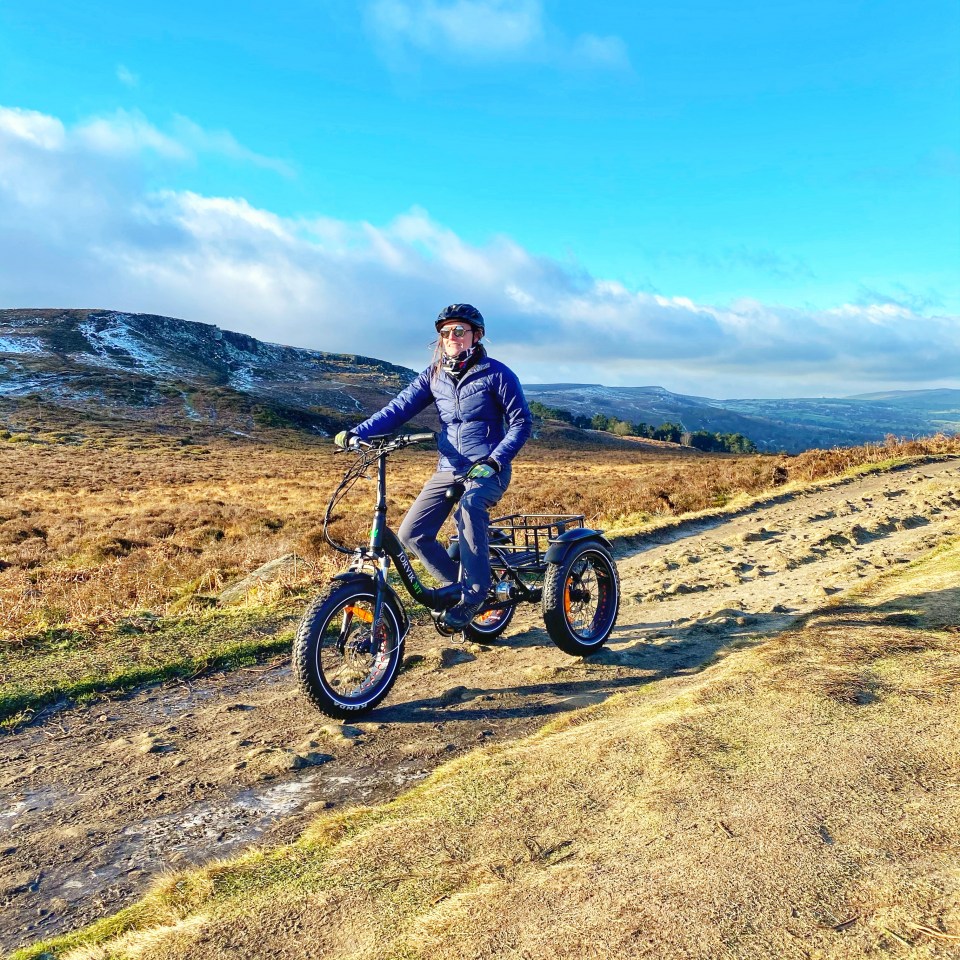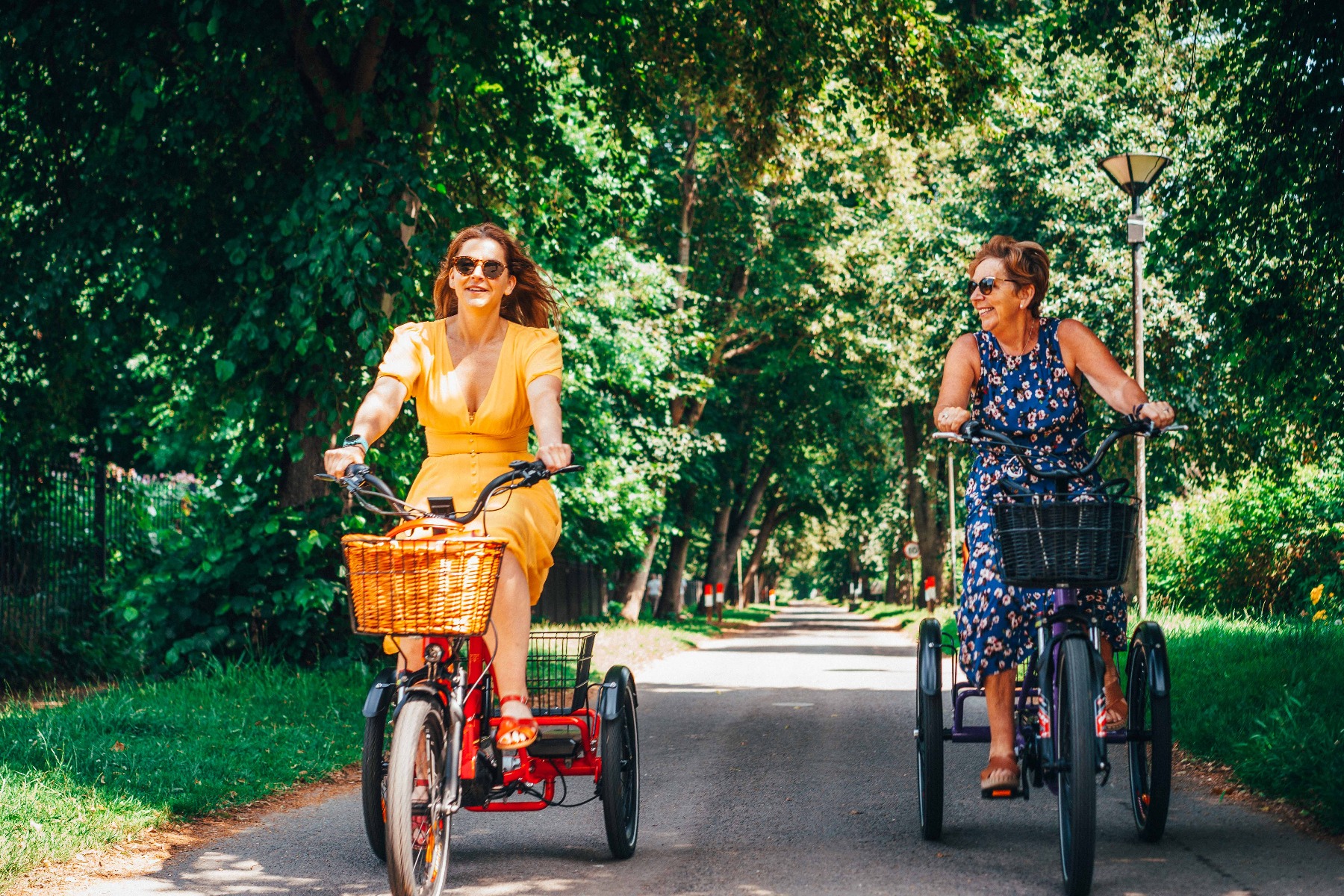The mental and physical benefits of cycling for women
30th June, 2021

Research from the British Heart Foundation found in 2017, around 20 million adults in the UK were physically inactive, 11.8 million of those being women. Exercising not only improves physical health but it has endless benefits to your mental health. Exercising releases endorphins and dopamine, helping to relieve stress and boost your mood. How can this help women in their daily life?
Mental benefits of cycling for women
Is there a difference between the mental health of women and men?
1Research about gender and mental health disorders shows that 29% of women are treated for mental health disorders compared to 17% of men (National Statistics 2003). However, this difference may be due to inherent socio-behavioural differences between the two genders. It could also be due to the under-reporting of mental health conditions in men, who are less likely to come forward for help.
How does a woman’s mental health vary throughout her life?
During their lives, women go through a lot of hormonal changes, most of which men can’t relate to like periods, childbirth, menopause, and it often leaves women feeling lonely. Similarly, at every stage of their lives, women have additional stresses and responsibilities compared to men, which make them increasingly vulnerable to a full range of mental health conditions.

Physical benefits of cycling for women
How does exercising improve our health?
One of the biggest benefits of physical exercise is it helps to counteract the physiological effects of stress and tension.
2Other benefits of exercise include –
- Better sleep
- Reduced feelings of stress
- Improved mood
- More energy
- Less tiredness /fatigue
- Increased libido
- Help to maintain a healthy weight
- Numerous improved physical health benefits (i.e., cardiovascular, and respiratory health)
Women often don’t realise that lack of exercise may be having a pronounced effect on their reproductive health. Irregular periods are linked to being overweight, poor health, or being obese. This means ovulation is disrupted and can affect their chances of conception. One of the first things a woman would be advised if she is seeking help for fertility issues is to lose weight and increase exercise to improve their physical health.
Fitness becomes increasingly important at and after menopause. After menopause, women become more at risk of cardiovascular disease, and osteoporosis. Taking regular weight-bearing exercise will help with both.
How often should you be exercising?
It’s recommended by the NHS that adults between 19 – 64 years old should get some form of exercise every single day. That equates to either 150 minutes of moderate-intensity activity or 75 minutes of vigorous activity per week. Cycling at a steady pace counts as moderate exercise and cycling uphill or on a lower gear for longer counts as vigorous exercise.
Read our blog to find out how to engage different muscles and exercise your whole body whilst on a tricycle.
Do women need to buy ladies' tricycles?
You don’t need to buy a specific ladies tricycle, but there are things to consider when choosing your tricycle to make sure it’s right for you.
On average, women are 12cm shorter than men, and whilst borrowing a male friend’s tricycle will work for a short while, it can become uncomfortable in the long run, especially if it hasn’t been properly adjusted to fit your body. Ladies’ tricycles accommodate women’s shorter height by having a shorter stack – the stack is the vertical distance from the centre of the bottom bracket to the mid-point at the head tube.
In short, no, you don’t need to buy a ladies tricycle because you can adjust a tricycle to fit you – within reason. Although, some women do prefer to buy ladies' tricycles saying they’re more comfortable and easier to ride. So, it’s down to personal preference and we recommend you try a few out in person before you decide.
1 Dr. Deborah Lee, Dr. Fox Online Pharmacy
2 Jack McNamara, NASM Certified Personal Trainer, NSCA Certified Special Populations Specialist and holds a master’s degree in Exercise for Special Populations, in addition to over 20 specialist licenses and certifications in health, exercise, and clinical rehabilitation